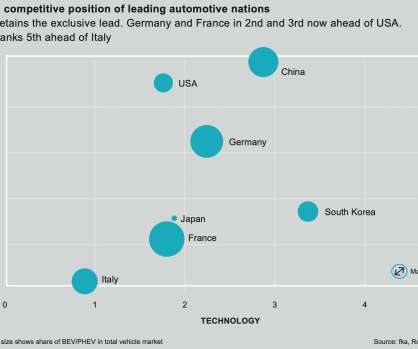Current issue of fka/Roland Berger E-mobility Index drops US to 4th place
Green Car Congress
MARCH 25, 2021
The index—now in its tenth year—facilitates a comparison of competitive positions of the relevant automotive nations (the US, Germany, China, France, Italy, Japan and South Korea) in the field of e-mobility, based on an objective assessment of those countries in three key areas: technology, market and industry.











Let's personalize your content